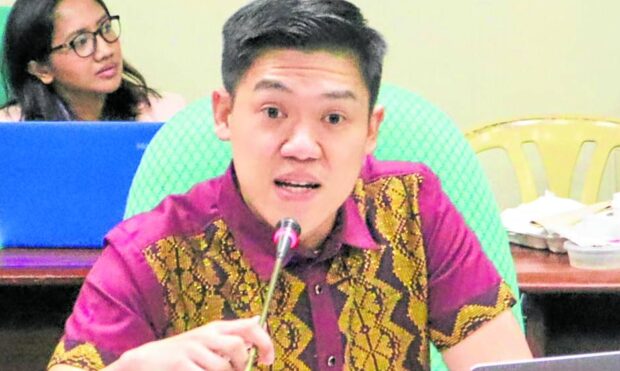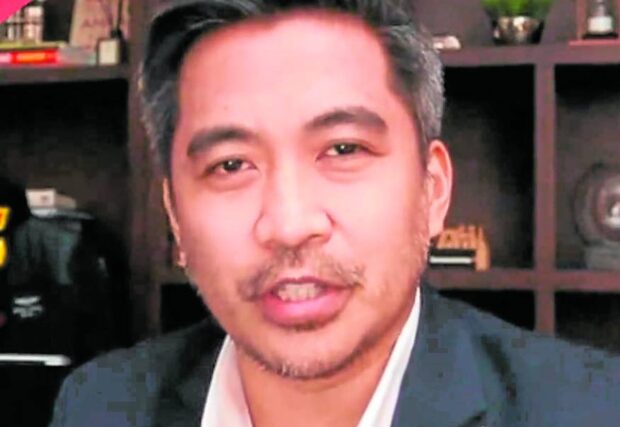Politics, red tape among factors affecting education reforms, says commission
MANILA, Philippines — The Second Congressional Commission on Education (Edcom II), whose members include 10 lawmakers and is tasked with improving the country’s educational system, has identified too much politics, red tape, and overregulation as among the factors impeding the proper implementation of education-related policies and reforms.
Created through Republic Act No. 11899, Edcom II is mandated to conduct a three-year-long “comprehensive national assessment and evaluation” of the education sector’s performance and come up with concrete recommendations by 2025.
Its members include five senators and five congressmen who serve as commissioners of the body, Edcom II Executive Director Karol Mark Yee said in a webinar held on July 13.
Also part of the commission is an advisory council with experts from different sectors, including the academe, industry, government agencies, local governments, and civil society organizations.
The commissioners, according to Yee, are Senators Sherwin Gatchalian, Francis Escudero, Sonny Angara, Pia Cayetano, and Joel Villanueva and Representatives Roman Romulo, Mark Go, Jose Benitez, Khalid Dimaporo, and Pablo Garcia.
Article continues after this advertisementSix months since the assessment started, one of the commission’s initial findings was that the politicians themselves were partly to blame for the state of the education sector.
Article continues after this advertisement“They know that and they say it themselves. They admit to it and they all agree that [this also applies to their colleagues, too],” Yee said as he noted that there was “good” and there was “bad” politics.
Joseph Noel Estrada, Edcom’s chief legal officer, added that politics could not be avoided as it could also be “favorable” to education, particularly when it comes to funding, considering that Congress holds the power of the purse.
“So if you get the numbers, if you get the supporters of education, then that’s good politics,” Estrada said, pointing out that one must pitch the right program to get backing but without sacrificing “educational goals and aspirations.”
Politics, according to him, will always be there since “the heads of education agencies are appointed by the Chief Executive.”
Overregulation
Aside from politics, another problem is the lack of trust in the accountability and ability of people on the ground such as teachers, resulting in overregulation, according to Yee.
“The assumption is always, and even for schools, [that] they will do all the wrong things… which is why we need to [add] all of these policies to make sure that we stop them from doing it. So the mindset is more deficit-based instead of empowerment,” he said.
As for the problem of too much red tape, the commission said this was based on its observation that there were many factors and policies beyond the education system that affect the work of schools and agencies concerned.
Yee explained that with public schools treated as government agencies, the processes of hiring, planning, and procurement become complicated because these are subject to the policies of the Department of Budget and Management, National Economic and Development Authority, including the Civil Service Commission.
“Most of the challenges we face require follow-through across administrations and we know this is a problem. Whenever there is a change in administration, there is a shift in direction and priorities. What happens then?” he said.
Edcom II has so far identified 28 priority areas to guide its assessment and development of policy reforms for the education sector, particularly in early childhood care and development, basic and higher education, teacher education and development, technical and vocational education and training, and governance and finance.
It has also listed priority bills in Congress. These include bills strengthening the establishment and operation of all public and private higher education institutions, the proposed Academic Recovery and Accessible Learning Program Act, and the proposed Basic Education and Early Childhood Education Alignment Act.
Aside from commissioning studies in partnership with universities and the Philippine Institute for Development Studies, Edcom II is also set to conduct local site visits and consultations until September to help it understand best practices and the challenges faced by teachers, implementers, and stakeholders.
Yee added that it was important as well to look into education models that have worked in other local contexts and countries whose situations were similar to the Philippines’.
“For example, we are looking at Chile because it has also a lot of private schools and our context is similar although it is slightly economically advantaged. We’re also looking at Indonesia and Vietnam which are in [the Association of Southeast Asian Nations]. They are not as rich as Thailand and Singapore but they improved their learning outcomes in the past decade,” he said.

